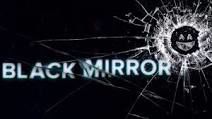Why You Should Watch Black Mirror

black mirror
February 6, 2018
How are you reading this now? On a laptop? Phone? Tablet? If you’re not reading this in a physical copy of “The Villanovan,” take a moment to think about the last time you read a real newspaper—the last time you heard its sharp crinkling as you whipped it open to the center fold, feeling the ridged edges of the soft grey paper on your fingertips. The various combinations of metal, plastic and glass we call technology have evolved past being useful tools to become integral parts of each and every one of us. Set as a series of vignettes in scarily realistic dystopian world, “Black Mirror” shows the potential psychological, and at times physical, damage too much technology can cause people.
By now if you haven’t already indulged in the Emmy award-winning series, there’s a very good chance you’ve heard of Chris Brooker’s “Black Mirror”, considering its rank at number six on Netflix’s 2017 “Shows That Got Us Cheating” list. That being the list of shows “so good we watched [them] ahead of our significant others” (Netflix).
Undoubtedly, one of the reasons for the show’s popularity is that it doesn’t necessarily fall into any cut and dry genre. Each episode, which ranges from 30 minutes to an hour in length, functions as a stand-alone mini movie with a different cast and plot. Though some of the episodes are borderline-disturbing psychological thrillers, others are heart-warming romances. No matter your preference, finding an episode that speaks to you is no challenge. I personally recommend “Hang the DJ” and “Black Museum.”
Each episode will have you questioning your dependency on technology and quite possibly your life as you know it. So once you’re done here, open up a new tab, head over to Netflix and start binge-watching your new favorite show.










